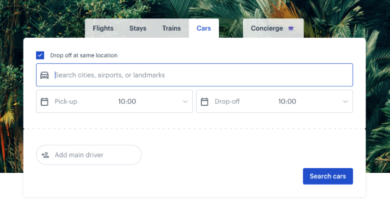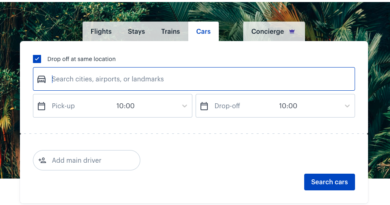4 Key things to consider before expanding your business
If you’re reading this, well, congratulations are in order! Your business is evolving and you’re thinking about expansion.
Perhaps you’re considering new markets, looking to increase your leverage in the domestic market, or you might be going global to explore an entirely new customer base. This is an exciting time, but it can also be challenging as you try to juggle old and new customers, foreign markets and local markets, and a rapidly changing workforce.
Whatever your growth strategy (don’t worry if you’re not quite at that stage yet), we’ve put together some top tips from those already doing it that can benefit all companies in a growth stage—whether you’re a large or small business
Here, you’ll find our top tips to consider for companies navigating both national and international expansion. Rather than strict business development advice, we’re going to be looking at the human aspect, and how taking care of your staff and fostering your company culture can support your business’s global expansion strategy and help you secure success.
Let’s get to growing!
Look after your staff, both old and new
To win over the marketplace, you must first win in the workplace. Content employees are the cogs and wheels that make a successful business run. After all, happy workers are at least 13% more productive.
Expanding a business isn’t just a logistical challenge; it’s a transformative process that can really impact the people within the organization. To ensure a seamless transition, it’s essential to prioritize your staff and their wellbeing. Here are a few key ways to do this:
Focus on tailored training and skill development
Invest in training programs for your existing staff, empowering them with the skills needed to navigate the challenges that will come with your expansion strategy. A proactive approach not only boosts your workforce’s capabilities but also instills confidence and loyalty among staff.
From Asia to Europe, and everywhere in between, entering new markets can be a daunting prospect. There are cultural differences and technology preferences to consider.
Jed Hackling, Co-Founder at Ambl, explains why this is so important for his growing team, and how he approaches staff training for the UK market.
“It’s so important to actively help your employees prepare for any new challenges they might face. I’d suggest you use your market research to help inform the training you’ll need to implement. For example, skills and styles employees will need to sell in a UK market in comparison to an American market will look very different.”
Build a skilled workforce in new locations with inclusive onboarding
Ensure you have a strong talent pool of skilled professionals in your new locations, or at least with knowledge of those markets if you’re a fully remote company.
This might involve recruiting locally or (temporarily) relocating existing employees. In either case, a seamless integration process is key for productive onboarding: without clear communication and onboarding processes that you can rinse and repeat, building an international business and its teams is a huge time investment.
Bear in mind that new employees may not have English as their first language. Ray Slater Berry, founder at DSLX, shares his experience in building international content teams.
“We’re often working with talent using English as a second language. It means our communications should be as inclusive and conscious of new cultures, languages, and experiences.
We try to provide onboarding workflows that deliver information in multiple formats to make learning more accessible. We also ensure that a large part of our onboarding is asynchronous so that our teams aren’t tied to timezones.”
Establish feedback mechanisms to ensure you’re growing the right way
Before you start hiring and relocating, it’s a good idea to establish a continuous feedback mechanism. This will help you gauge the sentiments of your workforce and respond to any collective concerns.
Gathering insights from different stakeholders within the company can help foster a culture of openness and inclusivity, which will be crucial to maintaining a sense of cohesion, especially when you’re moving into international markets.
A study by PwC found that 60% of employees would like feedback on a daily or weekly basis—by boosting team cohesion and improving communication, consistent feedback ensures that employees are on the same page and working towards the same goals.
Top tip:
Consider implementing anonymous feedback loops to give employees confidence in delivering their truth.
Bring all teams together, however you can
Expanding your business can lead to a sense of disconnection among teams. You might have teams located across the world, from France to Mexico to India, but there are ways of building a company-wide sense of togetherness. Here are our top tips for boosting team spirit.
Organize offsites and team-building activities
Now is the time to bring your teams together if you can. Organizing offsites and team-building activities can really strengthen relationships and build a sense of camaraderie. These events provide a platform for team members to interact in a more relaxed and informal setting, fostering better collaboration when they’re back in virtual offices.
Tackling global markets requires teamwork, as does improving distributor logistics, exporting new products, and all things expansion—so make sure you’re starting from a solid internal base with teams feeling connected to each other.
Share knowledge across locations
From Canada to China, teams in different countries can all learn something from each other— that’s a bonus of doing global business. It can be helpful to send high-performing individuals to other locations—this not only encourages knowledge sharing but also reinforces a sense of value and recognition among employees.
Cross-collaboration can be a powerful tool for innovation and increased productivity, especially if you’re based in different places: employees who feel connected to each other are five times as likely to report increased productivity, so giving teams the tools and resources to stay connected and share knowledge is crucial in this growth stage.
Emphasize the importance of in-person interaction
Where possible, encourage in-person interactions. Craig Hunter, Co-Founder and CEO at Dwelling tells us more.
“Face-to-face communication helps us build trust and boosts relationships in ways that virtual meetings simply can’t achieve.
Offsites and team-building events are great out-of-office activities, but it’s also important to hold in-person meetings when possible. In today’s hyper-online world, offline meetings are exceptionally useful, especially for feedback loops. You can learn a lot from what someone says as well as their body language when they say it.”An expansion strategy requires hours of communication, negotiation, and problem-solving—real-life conversation can drastically speed up a sticky process.
The success of an expanding business can depend on many factors: stable partnerships with providers, solid supply chains, steady home markets, the list goes on. But, there is one factor totally within a company’s control: the tools it uses. Whether it’s financial management, productivity solutions, or cutting-edge AI technology, the right tools can make or break your expansion efforts.
Achieve seamless operations with suitable finance tools
Expanding businesses often involves making complex financial transactions. Investing in advanced finance tools streamlines these processes, ensuring accuracy and, crucially, compliance. Finding the best finance tools for expanding companies can help you make informed choices, optimize changes, and keep things tailored to your specific business needs.
Harness the power of AI
Artificial Intelligence (AI) is a game-changer for expanding businesses. From automating routine tasks to providing data-driven insights, AI can significantly boost productivity and streamline admin-heavy tasks.
Business expansion relies heavily on operational efficiency, and human error can cause significant setbacks. AI can collect important data, identify relevant insights, and help you make informed decisions about the health of your company.
You can boost your productivity almost immediately by automating your workflow—leave the legwork to the algorithms and save your employees precious time!
Manage your business travel effectively and keep expansion sky-bound
Expanding a business often means more travel, whether it’s for sales, office setup, or networking. Effectively managing business travel is no longer a nice-to-have, but a must-have
Build the right business travel management for you
Introduce the concept of a business travel tool to streamline processes with your HR or travel team. With all the admin that goes into business expansion, it’s time to cut the unnecessary work and ensure you’ve got software on your side.
There are many solutions out there, like TravelPerk, which has been instrumental for companies in expansion mode. TravelPerk offers a centralized platform for booking, provides better control over expenses, real-time travel data, and seamless integrations with leading expense partners you’re probably already familiar with.
Increasing your business travel?
Start your international business expansion today—it’s all in the preparation!
It’s never too early to start preparing for expansion. Having the right tools and support in place from the get-go can be the ‘make or break’ factor. Particularly for those companies looking at global expansion into international markets, sorting your corporate travel is a must.
Whether it’s looking for flexible airfares or centralizing expenses, TravelPerk is here to help companies looking to gain control over their business travel management.




